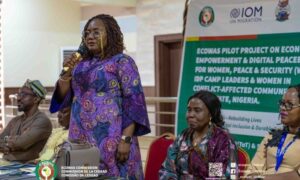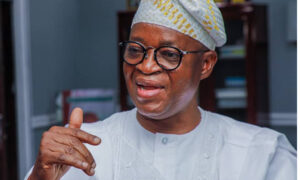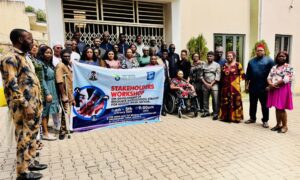- Now 3rd Biggest Economy
BY BONNY AMADI
The National Bureau of Statistics (NBS) on Monday released the long-awaited rebased gross domestic product (GDP) figures, updating the base year to 2019.
Nigeria’s GDP at current prices reached 372.8 trillion naira ($243 billion) in 2024, up from 314 trillion naira in 2023.
The last GDP rebasing exercise was conducted in 2014, with a base year of 2010. The country’s economy has been revised upward subsequent to changes in how Gross Domestic Product (GDP) is calculated, with more informal sectors now included in the official data.
Adeniran Adeyemi, statistician-general of the federation, in a statement on Monday, said rebasing is conventionally done every five years depending on resource availability and the technical capacity of the statistical office.
The latest data from the NBS, shows that Nigeria’s GDP grew by 3.13 per cent year-on-year in real terms in the first quarter of 2025, a notable improvement from the 2.27 per cent growth recorded in the same period last year.
GDP at current prices stood at 372.8 trillion naira ($243 billion) in 2024, up from 314 trillion naira in 2023, according to the statistics agency.
The adjustment is based on a change in the base year to 2019, which the NBS says was necessary to present a more accurate and updated picture of the economy’s structure.
The services sector remained the dominant driver of growth, expanding by 4.33% year-on-year.
“Following the benchmarking of the estimates, the performance of the GDP in Q1 of 2025 was driven mainly by the service sector, which recorded a growth rate of 4.33% and contributed 57.15% to the aggregate GDP,” said Statistician-General Adeyemi Adeniran.
Meanwhile, agriculture, which continues to employ a significant share of the population, grew marginally by 0.07%, a recovery from the -1.79% contraction recorded in Q1 2024.
Adeniran Adeyemi, statistician-general of the federation, in the statement on Monday, explained “As we are all aware, economies are dynamic. They change continually with innovation and new technologies, which alter the production and consumption patterns of individuals, households, firms, and government,” Adeyemi said.
“Given these changes, it is only right that the parameters used to estimate the size, structure, and movements in the economy are updated periodically, ensuring an accurate and realistic picture of the economy.
“This is why statistical offices worldwide undertake the process of rebasing. This is not a Nigerian affair; it is a global practice, conventionally done every five years, of course, depending on resource availability and the technical capacity of the statistical office.”













